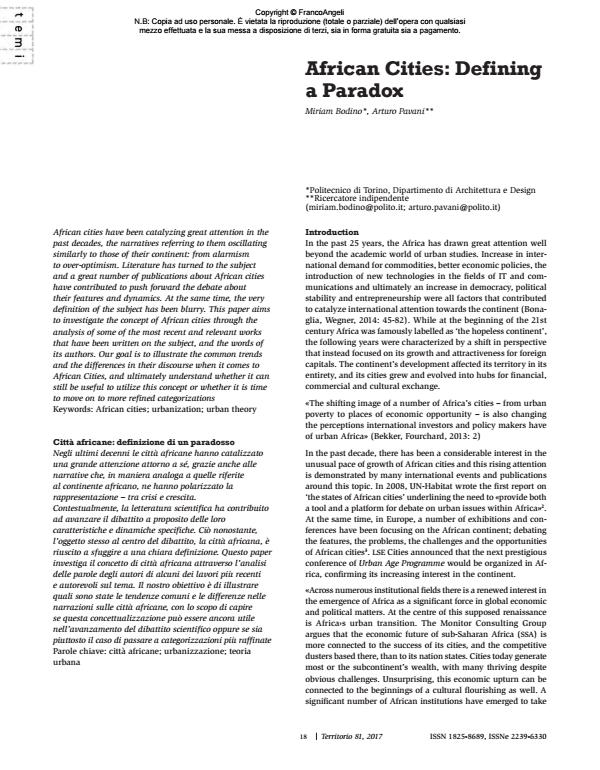African Cities: Defining a Paradox
Journal title TERRITORIO
Author/s Miriam Bodino, Arturo Pavani
Publishing Year 2017 Issue 2017/81
Language English Pages 5 P. 18-22 File size 797 KB
DOI 10.3280/TR2017-081003
DOI is like a bar code for intellectual property: to have more infomation
click here
Below, you can see the article first page
If you want to buy this article in PDF format, you can do it, following the instructions to buy download credits

FrancoAngeli is member of Publishers International Linking Association, Inc (PILA), a not-for-profit association which run the CrossRef service enabling links to and from online scholarly content.
African cities have been catalyzing great attention in the past decades, the narratives referring to them oscillating similarly to those of their continent: from alarmism to over-optimism. Literature has turned to the subject and a great number of publications about African cities have contributed to push forward the debate about their features and dynamics. At the same time, the very definition of the subject has been blurry. This paper aims to investigate the concept of African cities through the analysis of some of the most recent and relevant works that have been written on the subject, and the words of its authors. Our goal is to illustrate the common trends and the differences in their discourse when it comes to African Cities, and ultimately understand whether it can still be useful to utilize this concept or whether it is time to move on to more refined categorizations
Keywords: African cities; urbanization; urban theory
- Reframing the Role of Public Open Space Miriam Bodino, pp.19 (ISBN:978-3-030-94322-6)
Miriam Bodino, Arturo Pavani, African Cities: Defining a Paradox in "TERRITORIO" 81/2017, pp 18-22, DOI: 10.3280/TR2017-081003